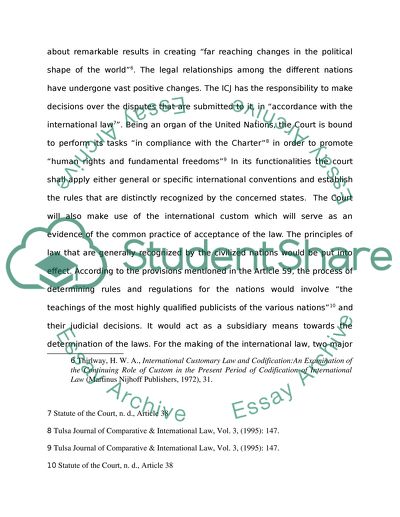Cite this document
(“With specific reference to post-1990s developments, critically Essay”, n.d.)
With specific reference to post-1990s developments, critically Essay. Retrieved from https://studentshare.org/law/1612384-with-specific-reference-to-post-1990s-developments-critically-evaluate-the-scope-of-the-doctrine-of-humanitarian-intervention-under-article-2-of-the-united-nations-chapter
With specific reference to post-1990s developments, critically Essay. Retrieved from https://studentshare.org/law/1612384-with-specific-reference-to-post-1990s-developments-critically-evaluate-the-scope-of-the-doctrine-of-humanitarian-intervention-under-article-2-of-the-united-nations-chapter
(With Specific Reference to Post-1990s Developments, Critically Essay)
With Specific Reference to Post-1990s Developments, Critically Essay. https://studentshare.org/law/1612384-with-specific-reference-to-post-1990s-developments-critically-evaluate-the-scope-of-the-doctrine-of-humanitarian-intervention-under-article-2-of-the-united-nations-chapter.
With Specific Reference to Post-1990s Developments, Critically Essay. https://studentshare.org/law/1612384-with-specific-reference-to-post-1990s-developments-critically-evaluate-the-scope-of-the-doctrine-of-humanitarian-intervention-under-article-2-of-the-united-nations-chapter.
“With Specific Reference to Post-1990s Developments, Critically Essay”, n.d. https://studentshare.org/law/1612384-with-specific-reference-to-post-1990s-developments-critically-evaluate-the-scope-of-the-doctrine-of-humanitarian-intervention-under-article-2-of-the-united-nations-chapter.


